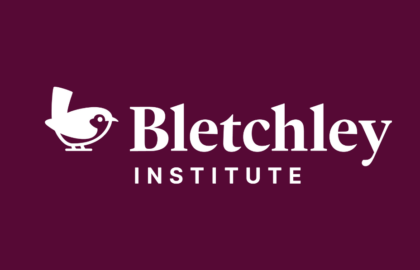How to Become a Web Developer in 2023

Web Developers are in demand, and the ability to code is critical in the increasingly digital world. Here’s how to get started in the field.
Launching a career as a web developer can help open up a lot of doors in the tech world. Web development ranks as the fourth-best job in the tech industry. This promising career shows no signs of slowing down when it comes to demand, as overall employment is expected to grow about 23% by 2031.
If you are drawn to a fast-paced industry with problem-solving challenges and opportunities for career development, then a web development career may be the right path for you. Here, we’ll dive into how to become a web developer and what this career entails.
Key Article Takeaways
- Web development is one of the most promising careers to pursue and is a safe option in an evolving economy.
- Essential skills are JavaScript, HTML/CSS, and often other languages like C++, Swift, or Python. Soft skills are also important.
- Web development offers high salaries, flexibility, and versatility. But there’s a lot expected of you.
- Learning web dev skills can lead you down many career paths, including back-end and full-stack development.
- Teaching yourself or attending college classes are fine options for learning, but coding bootcamps can be the practical choice.
- Web development is well worth pursuing.
What Do Web Developers Do?
Web developers—also known as programmers, coders, or engineers—use front end computer languages to build websites, applications, and apps. They also update existing programs per client or employer specifications. Coding helps clients with front-end and back-end development to drive traffic to websites, programs, and apps.
In short, web developers create a visual representation of the World Wide Web. Now that you know what they do, the next step is to identify the skills needed to learn web development.
What Coding Languages Do You Need to Know to Become a Web Developer?
There are several languages to choose from when learning to become a web developer or programmer, so it’s a good idea to review them. The different coding languages below detail which category they fit into and their primary uses. For a deeper dive into your language options, read our programming languages blog.
JavaScript
JavaScript is the most popular language among web developers, and knowing it is an essential skill for almost any job function. Of the 1.11 billion websites, 98.3% use JavaScript. It is a versatile language often used on the server side. A vast majority of devices run on JavaScript, too, including iPhones, Android, Microsoft Windows, and smart TVs.
If you’d like to dabble in JavaScript, Flatiron offers free lessons that teach JavaScript. Codecademy also has a good intro program.
Typical Javascript roles include:
- Software Engineer
- Front End Developer
- Full Stack Developer
A JavaScript developer earns an average annual salary of $116,751*. For a junior developer, that average comes in at $75,718 per year.
Python
Python is a popular programming language that is easy to learn and use. This program is used in a variety of fields, including scientific computing, data science, and machine learning. It is also used to develop 2D imaging and 3D animation packages like Blender, Inkscape, and Autodesk. Typically, it is used in back-end coding.
Typical Python roles include:
- Back End Developer
- Full Stack Developer
- Data Analyst
- Data Scientist
The average annual salary for Python developers is $123,309. Entry-level workers earn $116,847 annually, on average.
Ruby
Ruby is a popular scripting language used for web development and has a helpful community. It is a good language to learn because of its association with major tech companies. Ruby on Rails is a web application framework.
Typical Ruby titles include:
- Software Engineer
- Back End Developer
Ruby developers earn an average of $125,000 per year.
SQL
SQL (Standard Query Language) is a standard language for sorting, manipulating, and retrieving data in databases. It is critical for sifting through massive quantities of data to answer specific business questions. In 2023, the average annual salary for an SQL developer is $96,296.
Swift
Swift is a relatively new programming language used to develop iOS and macOS applications. It is optimized for performance and built to match the realities of modern iOS development. iOS developers often use Swift and earn an average of $125,946 a year.
HTML & CSS
HTML and CSS are essential for learning web development and are the building blocks for websites. They are often the first languages any web developer learns and are essential at all levels, especially among front-end developers. Front End Developers earn about $109,843 per year.
Go
Go is a low-level language that is ideal for systems programming. It is a compiled language that runs close to the metal and is open source. Despite its relative newness, Go is gaining popularity because it’s easy to learn and features a modern syntax. It is used by IT companies and data scientists, as well as for many Google applications.
Data Scientists make an average of $127,128 per year. A Go developer earns an annual salary of $104,840.
C++
C is the root of many programming languages with wide uses in computer science and programming; C++ is simply an enhanced version of C. Developers proficient in this programming language can use the compilers for a variety of platforms, making applications developed in these languages largely transportable.
Figures show that C++ developers receive an annual salary of $118,851, on average.
Breaking Down the Pros and Cons of Being a Web Developer
Pro: Flexibility
Coding jobs are in high demand, so developer jobs often have great perks and work-life balance. The coding lifestyle fits very well with working remotely, so coders may have the choice to work on their own time—though this can vary by company and role.
Pro: High Salaries
Computer programming is a highly lucrative career. According to U.S. News, software development ranks above all other job types in several categories, including:
Pro: Career Versatility
Being a coder means you’ll usually have a spot in almost any company. As the demand for automation and phone-based services expands, so does the demand for development jobs. This is the direction many companies are going in, so the demand for developers and web developers will follow suit.
Pro: Demand
As we touched upon earlier, demand for programmers, engineers, and web developers is only projected to grow and grow and grow. Software developer employment is projected to grow 25% by 2031, faster than the average rate for all occupations.
Pro: You Can Make Cool Things
We’ve all encountered websites with incredible “wow” factors. Web developers are responsible for creating some of the best experiences we have online, from the prettiest sites to the most functional ones. You can be the person who helps create that.
Con: Turnovers
Programming and development is a fast-paced industry, and there are a lot of benefits to that. However, changing jobs isn’t for everyone. Developers generally tend to switch jobs more often than other roles, and that could seem taxing to people who don’t want so much change.
Con: Startups Galore
Many of the companies that have the highest need for developers are startups. And with startups come more of the aforementioned change. Venture-backed, high-growth startups have many outcomes, both good and bad. Often, developers bear the brunt of this.
Con: New Languages
Developers are always expected to be learning. Languages and processes are always changing, and while that is exciting, there is often a lot expected from them.
What Other Jobs Can You Get If You Learn to Code?
There are a variety of in-demand jobs you can get by learning to code. People go down many paths in their first web development jobs, depending on their goals and ambitions. Consider what type of role you see yourself in when you decide which programming language you want to pursue and which bootcamps you might consider.
The most popular development jobs are outlined below.
Web Application Developer
A web application developer maintains both internal and external websites for companies. To do this, they focus on designing and implementing application systems for use on websites and mobile applications. Developers in this area need a solid understanding of HTML, CSS, and other programming languages like JavaScript.
The average salary for this position is $108,068 per year.
Software Engineer
Software engineers build computer systems, apps, and databases. The umbrella term—software engineering—is the main focus of Flatiron School’s flagship software engineering program.
The latest figures from 2023 show that the national average salary for software engineers is $139,952.
Front End Web Developer
Front-end web developers make websites with form and function. The typical skills needed are HTML, CSS, and JavaScript to build websites and display them properly on web browsers. These developers work hand-in-hand with graphic designers and back-end developers to create functional and aesthetically pleasing web pages. The national average salary for a front-end web developer is $98,828.
Back End Web Developer
Back-end developers pull information from a database and relay it to a web user. They complete their tasks using PHP, JavaScript, Ruby, Python, or SQL. Back-end development focuses on data and uses these coding languages to pull information from a database to relay it back to the user.
The national average salary for a back-end developer is $107,918.
Full Stack Developer
Full-stack developers know enough to create functional websites or troubleshoot issues on the back end of the site. Startups, medium-sized companies, and huge tech companies all need full-stack developers.
The national average salary for a full-stack developer is $124,218 a year. Learn more about pursuing this position.
Mobile Developer
Mobile developers create and publish iOS apps and Android apps with Swift. There is considerable room for growth in this particular field, as there is a high demand for apps, smartphones, and other mobile devices. The national average annual salary for a mobile developer is $114,669.
UX / UI Designer
UI/UX designers use code in their day-to-day jobs to focus on app user experience. They focus on user interface, user experience, and graphic design. Coding skills are often needed in day-to-day work.
UX/UI designers earn an annual average of $115,956. Learn about the different kinds of design, including UX, UI, and graphic design, on our blog.
Product Manager
Product managers work with developers and coders to act as the voice of the customer, understanding what they need and want. They benefit from understanding code and the functions of specific languages, which lets them address the needs of their teams.
They don’t need to be seasoned coders, but not knowing what goes into a product can facilitate project management and troubleshooting processes. The annual salary for product managers is approximately $153,698.
Database Developer
Database developers are responsible for the maintenance and development of databases. These employees can also work as database administrators, where they maintain the storage of information and make sure it is accessible to those who need it. Estimates show that they earn an annual salary of $108,713.
DevOps Engineer
DevOps professionals help companies innovate and stay competitive. In a business, they represent a team of professional coders, operations staff, and IT generalists. DevOps engineers make, on average $127,036 a year.
Data Analyst
If you learn the languages needed to become a developer but realize you love numbers, then becoming a data analyst might make sense for you. Data analysts are among the most in-demand positions in the realm of coding and computer science. They have skills that combine software engineering, coding, statistical analytics, and data visualization to tell stories and discover insights from big data.
They use Python, SQL, R, and Java to develop algorithms and build models to discover new problems and even predict consumer behavior. The average data analyst earns approximately $80,429 per year.
How to Get Started in a Web Development Career
Pursuing a career in coding does not necessarily require a computer science degree. Instead, this career requires dedication and patience—the years of experience come later.
Step 1. To get started, take some introductory lessons to see if you have a passion for coding. This passion is the single most important thing to get started in your career.
Step 2. Figure out what you’re interested in when comparing languages and job opportunities. There are several different types of developers, all of which have their unique benefits and drawbacks.
Step 3. Learn the skills you want to learn and stay diligent. Computer science classes and coding bootcamps can be hard. They involve a lot of learning in a short period, but once you’re done, it’s a rewarding feeling.
You can learn from professionals through bootcamps or get a degree in computer science.
Step 4. Build your online brand by establishing a good LinkedIn profile. Write about what you know and include any websites and apps you developed in your portfolio. From there, begin your job hunt. Once you begin the job interview process, make sure you practice for your interviews extensively beforehand.
How Do You Learn to Code?
To get a job in coding, you must first learn to code. Coding bootcamps are the best bet for getting into coding. These bootcamps are a middle ground between self-study and college degrees. They are more expensive and time-intensive, but they offer more support and motivation.
The entire purpose of a coding bootcamp is to get you job-ready as soon as possible without sacrificing education quality.
How Do You Know If a Coding Bootcamp Is Right for You?
Before you get into the program, it is important to pick the right bootcamp for you based on your goals, learning style, and expectations. You will want to look at the program’s success rate and curriculum.
Also, consider location. Some teach online, while others teach in-person. Some might focus on one or two specific languages, while others are more generalist, focusing on many different languages.
Find a bootcamp that teaches the languages that align with your goals and make sure they have career services. CareerKarma has an extensive list of the best coding bootcamps in 2023. Check out our web development bootcamp blog to learn more about coding bootcamps.
Will Coding Bootcamps Get You a Job?
Coding bootcamps can help you learn to code quickly, but they don’t guarantee a job. During your research process, your selection must offer career services that will help you build an online presence after you graduate.
Also, research job placement rates for any bootcamp you consider. Any good bootcamp will be open about how many of their graduates find jobs and their starting salaries. For example, we at Flatiron School release annual job reports.
Can You Teach Yourself To Code?
If a bootcamp isn’t for you, another option is self-study. While it is a cheaper option, learning on your own requires a lot of discipline. You must hold yourself accountable and solve problems on your own.
If you need additional resources, check our blog on the best websites to practice coding.
How Long Does It Take to Learn to Code and Become a Web Developer?
The time it takes to learn to code varies based on a student’s diligence. Coding bootcamps take as little as three months to as much as eight months. Coding is a lifelong journey, and it is important to have a passion for learning as new languages and popularities will change rapidly. A career in coding is not far off if you’re willing to put in the time.
I’ve Learned to Code, but I Have No Experience, So How Do I Become a Developer?
If you learned to code, you need to prove it. There are a variety of ways to showcase your knowledge and understanding of coding. Write blog posts about topics you’re interested in or projects you’ve completed.
Build out your professional brand across LinkedIn, Twitter, GitHub, and your website. Prepare for your interviews, as there will be soft skill and technical questions. Network in person and online to score more interviews.
Is Freelancing Worth It When Learning How to Code?
The key to getting started in freelancing is to find a strong gig marketplace. From there, apply for the gig that fits your situation. Follow up, and try not to get discouraged. Job searches don’t yield results, and then one day, they do!
Coders can have lucrative careers from freelance gigs, but first, it’s important to know where to start. Try getting involved with open-source projects. These projects consist of publicly available source code that anyone can modify. The ability to work with other coders of varying experiences can help develop your skills.
To be more competitive, pick up some soft skills and come prepared for interviews. As your freelance career progresses, find opportunities to practice clear communication, conflict resolution, and time management.
Start Your Web Development Education with Flatiron School
As you can see, learning how to become a web developer takes time, patience, resources, and the right mentality. If you need the right guidance for career development, Flatiron School can help. Apply to our program and see how you can accelerate your profession as a web developer.
*Salaries cited current as of September 2023
Disclaimer: The information in this blog is current as of September 14, 2023. Current policies, offerings, procedures, and programs may differ.



